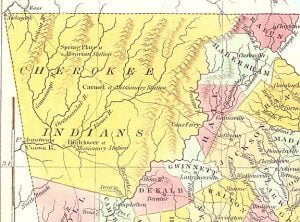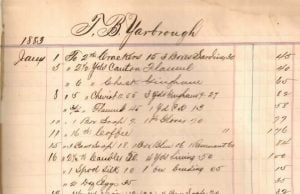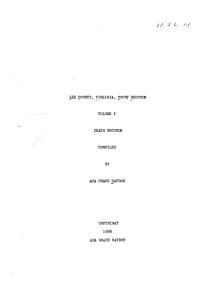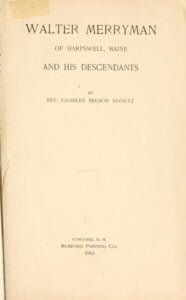Biographical Sketch of Edward C. Kincaid
(See Adair)-Edward C. Kincaid, born January 28, 1875. Married at Pryor March 31, 1906, Mary L, daughter of David and Lydia Givins. They are the parents of: Julia Pearl Kincaid, born April 29, 1908. Mr. Kincaid is a farmer, belongs to the Baptist church, is a member of the Ancient Order of United Workmen and Mutual Aid Society. Collins McDonald, born December 23, 1807. Married March 20, 1832, Naroena Adair born September 8, 1815. She died April 28, 1862, and he died November 5, 1895. Their daughter, Nancy Missouri McDonald, born November 31, 1849, married Joseph Kincaid, a native of … Read more







